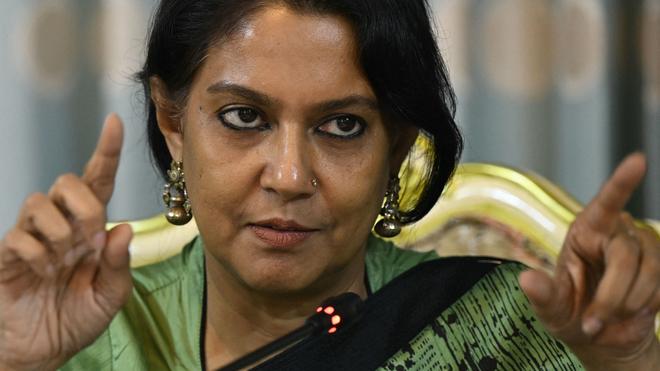Teesta water sharing treaty Bangladesh to push for restarting dialogue with India, says Interim government advisor
Syeda Rizwana Hasan emphasizes adherence to international norms for equitable water distribution between upper and lower riparian countries.Hasan expresses optimism that the Teesta treaty and other water-sharing agreements can be resolved through dialogue.

Image credit:- thehindu
Bangladesh's interim government, through its advisor on water resources Syeda Rizwana Hasan, has expressed a strong desire to restart negotiations with India on the long-pending Teesta water sharing treaty. Ms. Hasan emphasized that both upper-riparian and lower-riparian countries should adhere to international principles when it comes to the distribution of transboundary river waters.
In an interview with PTI in Dhaka, Ms. Hasan conveyed her confidence that the Teesta treaty and other water-sharing agreements between India and Bangladesh can be resolved amicably through dialogue. However, she also suggested that Bangladesh may consider endorsing international legal principles and documents regarding water sharing if an agreement cannot be reached bilaterally.
The Teesta river, a tributary of the Brahmaputra, originates in Sikkim, India, and flows through West Bengal before entering Bangladesh. It is Bangladesh's fourth largest transboundary river, with its floodplain covering about 14% of the country's total cropped area and providing livelihood opportunities to approximately 73% of its population.
Despite several attempts over the years, India and Bangladesh have not been able to finalize the Teesta water sharing treaty. In 2011, a draft agreement was prepared that proposed India receiving 42.5% and Bangladesh 37.5% of the river's water during the dry season (December to March). However, the deal was not signed due to opposition from West Bengal Chief Minister Mamata Banerjee, who cited water scarcity in her state.
Ms. Hasan noted that the interim government in Bangladesh has discussed the need to restart the dialogue on the Teesta treaty with all relevant stakeholders. She emphasized that the first step for Bangladesh will be to address the issue with India and Nepal bilaterally, and only consider taking it to the international level if an amicable solution cannot be reached.
The Teesta water sharing dispute has been a long-standing issue between India and Bangladesh, with the two countries sharing 54 transboundary rivers in total. While they have water-sharing agreements for only eight of these rivers, the Ganges Water Sharing Treaty signed in 1996 is set to expire in 2026.
As Bangladesh's interim government pushes for a restart of the Teesta dialogue, it remains to be seen whether the two countries can find a mutually acceptable solution that adheres to international principles and meets the water needs of both nations.



